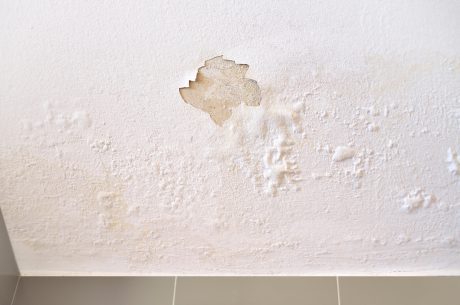Are you tired of dealing with a damp or flooded basement every time it rains? Keeping water out of your basement is crucial for maintaining a dry, safe, and functional living space. A dry basement is not just a matter of comfort; it’s crucial for maintaining the structural integrity and value of your home.
In this blog post, we’ll explore 10 key tips to help you keep water out of your basement and protect your home from the damaging effects of moisture infiltration. From simple maintenance tasks to more involved drainage solutions, we’ve got you covered with practical advice to safeguard your basement against water intrusion.
It doesn’t matter if it is not raining now in your location, what matters is that you are properly equipped with these measures to prevent such damage. That being said, Let’s dive in and discover how you can effectively manage water around your home to ensure a dry and secure basement environment.
Water entering your basement due to drainage problems, flash floods, appliance failures or other reasons can cause severe damage to your home.
10 Key Tips to Keep Water Out of Your Basement
Here’s what you can do to stop water from accumulating into your basement:
1. Clean rain gutters.
Blocked gutters may cause roof water to pour directly into your home’s foundation, increasing the risk of basement flooding. Remove any debris, such as leaves or branches from the gutters and check the gutters for loose particles if you have asphalt roofing. Tighten any loose gutter straps and spout extensions. If there is gunk in the downspouts, clean them by pouring water into the downspouts with a garden hose.
2. Extend downspouts.
To protect your basement from excess water, downspouts should extend at least five feet away from your house. This can be achieved by adding plastic or metal extensions to the downspouts. Alternatively, consider having an underground drain pipe installed. This system can send gutter run-off away from your house.
3. Slope the ground away from your foundation.
Make sure that the ground next to your foundation slopes away from the foundation to divert rainwater away from your home. The “crown” of dirt around your house should slope at least six inches over the first 10 feet in all directions.
4. Seal gaps in the basement.
Water may leak into your basement through gaps or cracks around plumbing pipes or cracks in concrete walls. Seal these gaps with polyurethane caulk or hydraulic cement. However, if water comes through the floor, sealing gaps won’t do the trick and you need to fix the groundwater problem.
5. Install a French drain.
For serious water problems, install a curtain drain such as a French drain. This type of drainage system consists of a series of underground pipes that diverts water away from your home’s foundation.
6. Waterproof interior basement walls.
Condensation that forms on basement walls may be prevented by applying sealant on the walls. You can waterproof basement walls with concrete coatings, silicate-based concrete sealers, waterproofing paint or plastic sheets or panels. Alternatively, waterproof exterior walls of the basement to fix gaps in the foundation, although it’s a costly job that requires excavating around the house.
7. Install a sump pump.
These devices provide protection against flooding by pumping out water that has accumulated in the sump basin. When the water level in the basement floor rises, the sump pump will automatically discharge the water outside your house. Learn how to choose a sump pump here and how to test a sump pump in this article.
8. Install window well covers:
If your basement has windows that are at or below ground level, installing window well covers can prevent rainwater from accumulating around the windows and seeping into the basement. Ensure that the covers are securely fastened and properly sealed to keep water out effectively.
9. Improve yard drainage:
Evaluate the grading of your yard to ensure that water flows away from your home’s foundation. Consider landscaping solutions such as creating swales or adding French drains in areas where water tends to collect. Proper yard drainage can significantly reduce the risk of water seeping into your basement during heavy rainfalls.
10. Inspect and maintain your foundation:
Regularly inspect your foundation for any signs of cracks, deterioration, or gaps where water could potentially enter. Promptly repair any issues you find, using appropriate sealants or patching materials. Additionally, keep vegetation and landscaping features at least a few feet away from your foundation to prevent roots from causing damage that could lead to water infiltration.
In case your basement has flooded, call a water damage contractor immediately. To avoid safety hazards, don’t enter the basement and make sure to not make direct contact with floodwater.
Water in basement after rain, who to call?
If you notice water in your basement after rain in New Jersey, it’s essential to take action promptly to prevent further damage. Quickly contact PuroClean Emergency Recovery Services New Jersey on (877) 750-7876. Our experts can assess the situation, identify the source of the water intrusion, and recommend appropriate solutions to address the problem effectively.
How to stop water from seeping through basement walls?
To stop water from seeping through basement walls, you can take several preventive measures. One effective solution is to apply waterproofing sealants or coatings to the interior or exterior walls of the basement. Additionally, repairing any cracks or gaps in the walls using hydraulic cement or polyurethane sealant can help prevent water infiltration. Installing exterior drainage systems, such as French drains or curtain drains, can also divert water away from the foundation walls, reducing the likelihood of seepage.
How much water in basement is bad?
Any amount of water in the basement can be a cause for concern, as it indicates potential issues with drainage or waterproofing. However, the severity of the situation depends on various factors, including the amount of water, how frequently it occurs, and the extent of damage it causes. Generally, even small amounts of water can lead to mold growth, structural damage, and other problems if left unaddressed. Therefore, it’s essential to address any water intrusion promptly and take preventive measures to minimize future occurrences.
How to stop water from coming in basement door?
To prevent water from coming in through the basement door, you can take several steps. Start by ensuring that the door is properly sealed and weather-stripped to create a tight barrier against water intrusion. If necessary, consider installing a door threshold or door sweep to further enhance the seal. Additionally, inspect the surrounding area for any signs of water pooling or inadequate drainage, and address these issues as needed. Installing a gutter system or extending downspouts away from the house can also help redirect water away from the basement door, reducing the risk of water infiltration.
In conclusion, Addressing water intrusion in your basement is essential for maintaining a dry, safe, and comfortable living space. By implementing the tips outlined in this guide, you can take proactive steps to safeguard your basement against water damage and reduce the risk of costly repairs in the future. Remember to stay vigilant for signs of water infiltration, such as dampness, mold growth, or musty odors, and address any issues promptly to prevent further damage.
Whether you need to call in professionals for assistance or undertake preventive maintenance measures yourself, investing time and effort into protecting your basement from water intrusion is well worth it in the long run. With proper care and attention, you can ensure that your basement remains a functional and enjoyable part of your home for years to come.




 PuroClean Emergency Fire, Water and Mold Damage Restoration New Jersey
PuroClean Emergency Fire, Water and Mold Damage Restoration New Jersey